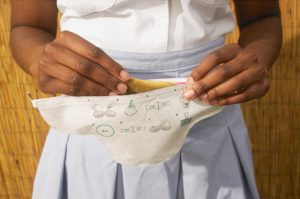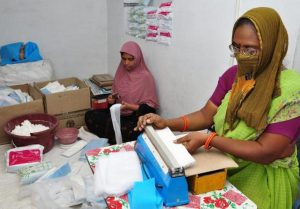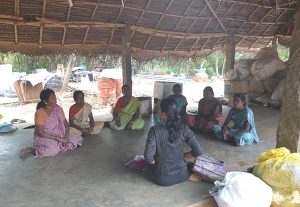New Delhi: Long-lasting, comfortable, stain-free and affordable is the thoughts that come to every woman’s mind when she picks up a disposable sanitary napkin. But nowdays its disposal is becoming hazardous to environment.
Billion of these non-compostable sanitary pads are making their way into sewerage systems, landfills, fields and water bodies in India every month, posing huge environmental and health risks.
With taboos and superstitions galore about menstruating women in India, safe technologies and interventions to dispose and treat menstrual waste have become a huge challenge.
Though the Indian government is ensuring that all women and girls, especially in rural pockets, have easy access to sanitary napkins, the need of the hour, say experts to media “more attention” to managing menstrual waste, which is estimated to be 113,000 tons annually.
Perhaps realising the growing problem of menstrual waste, the Narendra Modi government came out with new Solid Waste Management (SWM) rules last year.
These rules makes it obligatory for the manufacturers, brand owners or marketing companies of sanitary napkins and diapers to provide a pouch or wrapper for their safe disposal. But that doesn’t seem to be enough.
Arundati Muralidharan, Manager-Policy (WASH in Health and Nutrition, WASH in Schools) at Water Aid India, an international charity that works in the area of water, sanitation and hygiene services, said the government has menstrual waste “very much” on its radar and has been “thinking” about its management.
“If we do not begin to address this issue now, we will have volume of non-biodegradable waste that will take hundreds of years to degrade.”
According to a survey, about 336 million girls and women experience menstruation in India, which means that approximately 121 million of them are using disposable sanitary napkins.
With no knowledge of how to dispose them off, most women just throw them in the garbage bin which usually gets mixed up with dry, wet and hazardous waste.
Apart from the fact that it cannot be recycled, the exposed sanitary napkin poses grave health risks for the waste collector.
Expert added, the problem does not end here. The plastic layer which is used to make it stain-free and the chemicals used in producing it get further transferred between soil, water and air.
Activists are advocating using reusable eco-friendly sanitary pads, including cloth pads, biodegredable pads and cups.
“Good menstrual hygiene practices keep the body healthy thereby less vulnerable to infections/diseases.”
As innovation is the key to this issue, Ellege said they are “working to design waste handling and treatment systems that will process the waste, and potentially use the by-products as mechanism for advancing waste-to-energy technology solutions on-site.”














